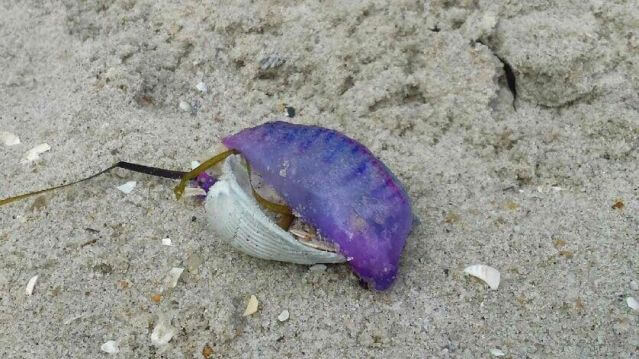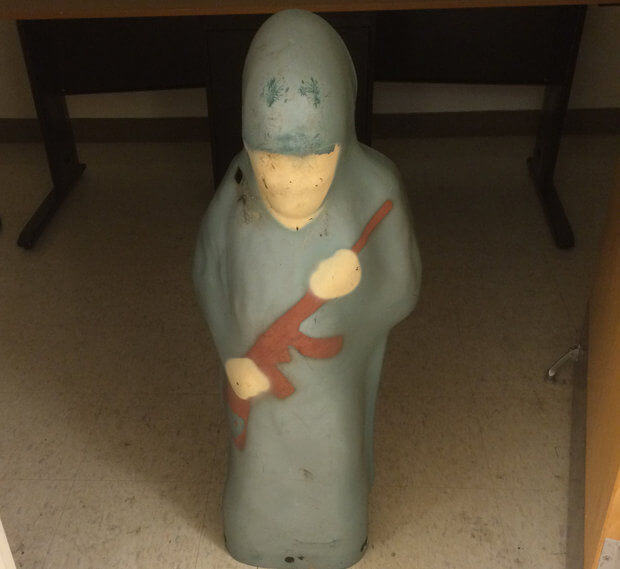A town councilman from Stone Harbor, New Jersey, says more than two dozen Portuguese man o’ war jellyfish have washed up on the town’s beaches.
That follows reports of the jellyfish being found on beaches in Harvey Cedars and Stone Harbor, NJ.com reports. Also known as the “physalia,” “floating terror” or “bluebottle,” a man o’ war’s sting is said to be far more painful than that of a regular jellyfish. Depending on the person, a man o’ war’s stings can cause extreme pain, fever, shock, lung and heart problems and in rare cases, death, reports say.
The Portuguese man o’ war jellyfish have body parts that stick out of the water, acting as a sail. They are more common in tropical climates, but may be riding warm currents north.
Experts advise people who find these types of dangerous jellyfish to leave them on the sand and tell a lifeguard. Their tails continue to contain venom even after they’ve died.
In 2008, authorities southern Englandclosed a beach after 10 jellyfish washed up on shore.
More dangerous jellyfish in South Jersey

Provided


























